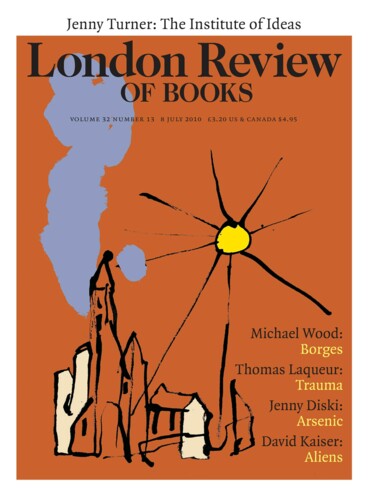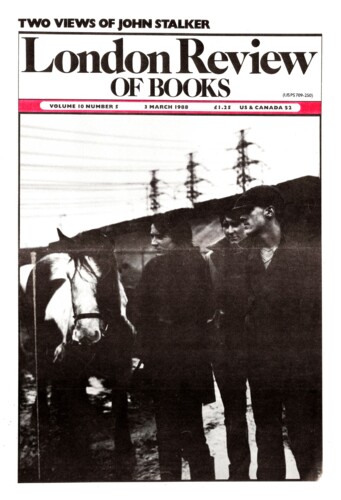Daniel Waissbein
Daniel Waissbein is a translator with the United Nations and has published articles on Borges and Neruda.
Viva Ocampo
3 March 1988
Dying for Madame Ocampo
Daniel Waissbein, 3 March 1988
Can a literary magazine, however important, be said to have played a fundamental role in the development of a national culture for almost half a century? Can one really say that Argentine culture has ‘developed’ over those same years? Is there, indeed, such a thing as a clearly definable Argentine culture, and if so, what does it consist of? These questions are not discussed in John King’s otherwise informative study of the Argentine literary journal Sur, from its inception in 1931 to its slow death in the Seventies and Eighties. Yet an answer to them, however approximate, is crucial to any attempt at placing the publication in the context referred to in the title of King’s study. He does, however, present us with an articulate, lucid and competent analysis of most – but not all – aspects of Spanish America’s best-known – to some, most prestigious, to others, most infamous – literary magazine. What is puzzling is that he himself cannot altogether make up his mind whether he sees the journal as having made a positive or a negative contribution.’
Read anywhere with the London Review of Books app, available now from the App Store for Apple devices, Google Play for Android devices and Amazon for your Kindle Fire.
Sign up to our newsletter
For highlights from the latest issue, our archive and the blog, as well as news, events and exclusive promotions.


